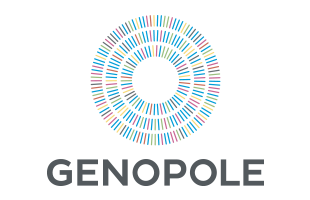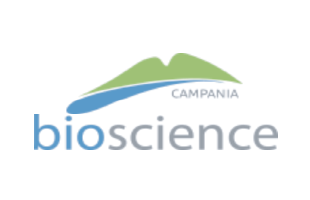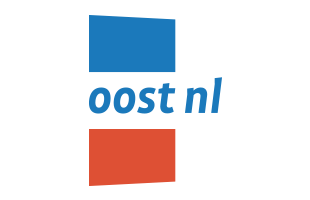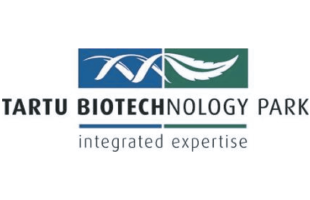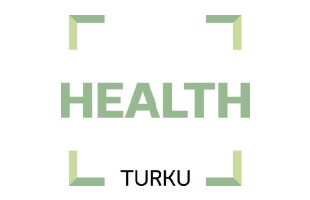SEP 20 – Genomic value chain definition
The goal is to build a shared and inclusive genomics value chain identity (sampling, sequencing, analysis, modelisation, interpretation, exploitation/application) where each cluster partner has its place and can integrate its companies into it. Through this action, we are pooling a rare, innovative and unstructured field of activity at European level. This project will be carried out around our meta-cluster, which may later be joined by other important players in this field. The purpose of this approach is to make our actions more effective for our prospecting outside Europe.
At the end of this work, we will have a clear vision of the genomics industry’s offer of our meta-cluster, based on our collective strengths and weaknesses, but also on our needs and types of international target. The process by which this vision will be achieved aims to gradually involve SMEs all along this project, and integrate them into the process of international objective definition.
DEC 20 – Consolidate the Partnership integrating SMEs
One of the key steps in this GEN-ERA project to guarantee its success is to ensure that the companies of the 5 clusters involved in the consortium are fully involved in this adventure. Companies have to be convinced that they will benefit from it and that the actions that will be implemented during the project, are the most appropriate. To this end, our companies will be regularly solicited and involved in the process.
After structuring the genomics value chain at a Cluster level, we will position each SME individually taking into account their characteristics, business model, maturity, strengths …. The objective is to understand in depth the strategies of our companies in order to meet their needs and create competitive advantages. Our meta-cluster seek to foster complementarities of our companies with each other providing additional goods and services, while ensuring that counter-productive competition is avoided.
DEC 20 – Identification of the needs and expectations of companies. Ensure their involvement
To collect the input and the views of our respective companies regarding the genomics value chain, their position and their interest, a survey will be carried out by the leader of the WP2 and then discussed and finalized with all the partners during a dedicated E- Meeting.
Each Cluster will then conduct individual interviews based on the survey to obtain exploitable and standardized information. The number of companies considered as involved in the genomics value chain for all five clusters is today around 80.
SEP 21 – Market Benchmark
The main objective is to define the international strategy of our partnership, by selecting among several markets, the most adapted regarding the value chain addressed by GEN.ERA.
Market intelligence is often an aspect neglected by companies due to a lack of time, resources and expertise. Our partnership aims to avoid such inconvenience by offering to companies an international monitoring based on their needs, specificities, interests and added-value.
In this Work-Package, GEN.ERA’s objective is to carry out a selection of high-potential markets of interest for our SMEs regarding GEN.ERA field of interest. Given the strong position in the genomic field of certain countries, their market readiness, the expressions of interest received from our SMEs within the different clusters and the pre-existing collaborations already established between the five clusters and abroad partners, Australia, China, India, Japan, Korea, Taiwan, Singapore and the USA will be the first to receive the consortium’s attention with the final objective of keeping only two or three of them after a more refined selection process.
We will conduct the market selection focusing on general aspects such as the market potential, the country’s laws and cultures, economic and political situation, time-to-market, profitability to do a first selection. In a second step we will focus on practical aspects of regarding product-market fit, market penetration, by using market practical knowledge and studies conducted during other generation of ESCPs.
SEP 21 – Compare market access constraints and possibilities, relying on real experiences
The GEN.ERA partnership wants to capitalize on the accumulated experience, it seems essential to us to be able to rely on lived experience in order to have the most accurate vision of access possibilities for our companies. On the other hand, we want to be as close as possible to our members’ aspirations, we want to share this practical input and associate them to the market selection process.
Collect and rely on pre-existing expertise
The partners have a solid network of pre-existing experts to support companies on a daily basis in their international initiatives, either through previous collaboration or through national support programs:
- We can count on the experience acquired by other ESCPs generations, for example BioXcluster, which has studied and set up fact-finding missions in about 4 markets of interest to us (China, South Korea, Australia, Japan).
- We can also benefit from the institutional networks of our respective countries, for example Genopole regularly relies on the experts of the French Team Export (governmental institution), which is present throughout the world.
- Two members, Turku and Tartu, have jointly collaborated in CB Health Access Interreg project to support the export of healthtech companies to India, USA, South- Korea. We will conduct a study focusing on concrete issues such as difficulties we can potentially encountered, but also the tips or point of attention and a first glimpse of potential contacts. Finally, in an effort to introduce WP4, we will look to obtain information on regulatory affairs, market access (how and where to enter the market, how to find distributors etc.). GEN.ERA will organize working groups to contact these specialists on each target country. Then a workshop will be set up to share the information collected, mutualize and elaborate a report on feasibility of the targeted markets.
JAN 22 – Target Market Partnership validation
GEN.ERA will evaluate, on the basis of all the data collected (benchmark, lived experience, interest from companies), the possibility of retaining only 2 or 3 target countries among the 5 finalists. Each partner will draw up a list of three countries, the countries with the lowest number of votes will be eliminated. A dedicated e-meetings to evaluate collected data ending with a voting session will be organized subsequently.
Depending on the selected target countries, a clarification of the objectives will have to be carried out.
We will define objectives following the specific, measurable, attainable, realistic and time- bound (SMART) method.
JAN 22 – Training for SMEs
The main objective is to build an initial preparation package for SMEs, allowing them a “smart take-off” towards a “soft landing”. We will ensure that businesses entering or expanding into new markets are introduced to the selected countries markets and opportunities more effectively.
GEN.ERA will prepare and train participating cluster and SMEs through trusted market experts in the form of video material and print reports, such as webinar sessions will be established in order to get a first orientation in the new and complex market environments of the selected markets.
GEN.ERA will organize online focus to capitalise the findings and possible partnerships proposed by market expert
GEN.ERA will expand and develop the relationships established with international Clusters, business networks, agencies, entities and other organisations that can support the implementation of the Internationalisation Strategy, and will use them to support GEN.ERA SMEs in entering targeted third markets and developing internationally
By doing this, GEN.ERA consortium will refine the internationalization strategy and its implementation roadmap, to generate new collaborations between European SMEs and selected market players.
SEP 22 – Finalise the GEN.ERA Joint International Strategy
The “GEN.ERA International Strategy” has been developed along the previous project development: clusters involved in this partnership have carried out a common value chain (WP2), contributed to select target markets (WP3) and proposed an international preparation package for SMEs and make our partnership more visible outside (WP4).
The GEN.ERA partnership is the gateway to selected international markets for SMEs in the cluster and beyond with global perspective and common goals.
GEN.ERA Internationalisation Strategy Plan
After evaluating our strengths and weaknesses at a metacluster level in (2.2.1) with a S.W.O.T. analysis, developed synergies between members in C2C and B2B (2.2.2), selected 2-3 markets envisaged through Market Intelligence (3.2), evaluated and fostered potential European and international cooperation in thematic areas (2.3.2; 4.2.2), and as well as global trends for our value chain (3.2.1), GENERA will draft an Internationalisation strategy plan seeking to exploit synergies with other European or National and Regional initiatives.
We will proceed during a one-day workshop to develop the main lines of the document. Then complete it during dedicated e-meetings.
To summarize, GENERA followed substantial paths for the development of a coherent and well-structured plan:
Step 1: Structuration of the Partnership Value Chain (VC)
Step 2: Integration of SMEs into VC initiative
Step 3: Identification VC trends
Step 4: Building of GEN.ERA Partnership Agreement
Step 5: Completion of GEN.ERA approach towards selected targeted market Step 6: Training SMEs& Cluster to go in targeted markets
Step 7: Network-shaping
 This project was funded by the European Union’s COSME Programme under agreement No 951197.
This project was funded by the European Union’s COSME Programme under agreement No 951197.
